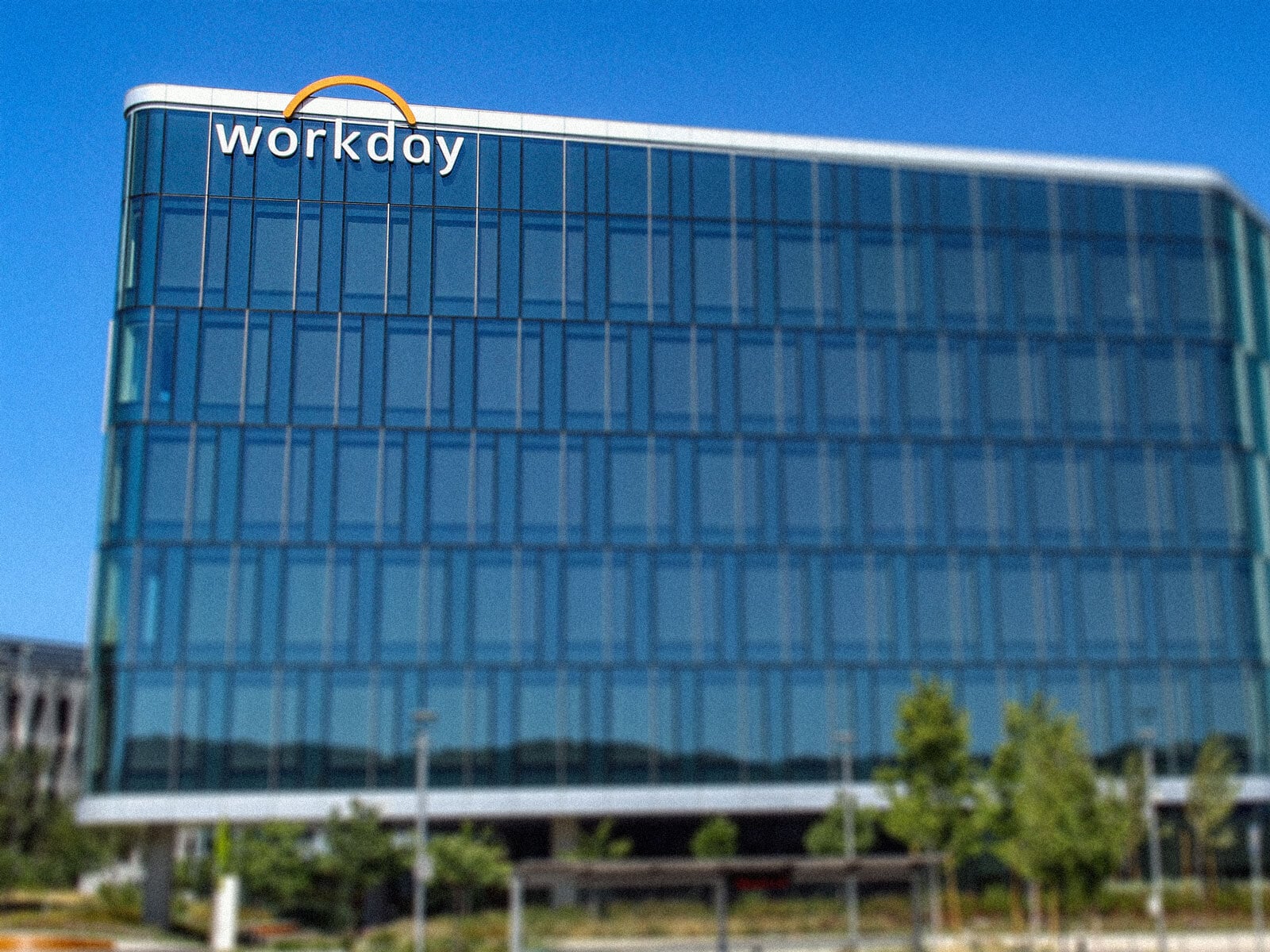Workday [WDAY] develops enterprise cloud applications for finance and human resources teams. It has a particular focus on software that enables effective human capital management processes.
Despite being singled out by two influential figures in the investing field, Workday’s share price has lagged year to date. Here, we will explore its fundamentals compared to two close competitors, and examine why getting artificial intelligence (AI) working for Workday could be key to its prospects.
Build AI and They Will Come
Workday has been successful in integrating the potential of generative AI into its product offering.
CEO Carl Eschenbach told investors following the Q2 earnings release that “customers are coming to Workday for our AI innovation… Just one quarter after closing the HiredScore acquisition, we made HiredScore AI for Recruiting and HiredScore AI for Talent Mobility available for purchase under one unified contract.”
Thanks to these efforts, Workday was included in Insider Monkeys’ list of 10 Unsexy AI Stocks According to Goldman Sachs.
“I fundamentally believe an investment in Workday is an investment in AI,” Eschenbach told the investment bank’s Communacopia and Technology conference in September.
In the week following, Workday announced that it had reached an agreement to acquire AI documentation company Evisort, and released four new AI agents that will help customers streamline business processes across HR and finance functions.
The Share Price Reaction
Workday’s shares gained 16.91% over the past 12 months, but fell 12.21% in the year to date.
Workday’s stock gained 12.49% on August 23, the day after it released its Q2 results, in which it raised its margin guidance for the year.
However, shares have trailed off since then, and the rally was at any rate insufficient to recover the ground lost on May 24, the day after the release of its Q1 results.
Investors, it seems, need convincing that Workday’s investments into AI will pay off in the long run.
Key Fundamentals and Financial Health
Workday is a specialist within its field, but it competes for market share with rival products from two large, diversified cloud computing companies.
SAP [SAP] is a multinational developer of software-as-a-service (SaaS) products, including SAP SuccessFactors. SuccessFactors is a suite of human capital management software that generates approximately $750m in annual revenue — 2.40% of SAP’s total for 2023.
Oracle [ORCL] is a large cloud service provider, but it also dabbles in enterprise software. Oracle Human Capital Management is a complete cloud-based solution for HR processes across an enterprise.
| WDAY | SAP | ORCL | |
|---|---|---|---|
| Market Cap | $64.22bn | $258.35bn | $473.46bn |
| P/S Ratio | 8.27 | 7.22 | 8.99 |
| Estimated Sales Growth (Current Fiscal Year) | 15.70% | 12.20% | 19.90% |
| Estimated Sales Growth (Next Fiscal Year) | 14.10% | 11.10% | 12.00% |
Source: Yahoo Finance
The current valuations of all three stocks are similar, with SAP slightly discounted compared to its trailing sales. However, analysts expect it to see the slowest rate of revenue growth next year, while Workday is expected to see the fastest.
WDAY Stock: The Investment Case
The Bull Case for Workday
In terms of trailing earnings, Workday has the best valuation of all three stocks. Its trailing P/E ratio of 41.78 is lower than both SAP’s, at 92.57, and Oracle’s, at 44.04.
Goldman Sachs is not the only high-profile backing that Workday has received in recent weeks. Jim Cramer, host of CNBC’s Mad Money, recently included Workday on a list of stocks that could outperform the market following the US Federal Reserve’s rate cut.
“In the crazy world of the stock market, we only have so much cash to go around, and right now, it’s flowing into companies that would have been doomed in a world where the Fed didn’t start cutting rates,” he said. While this dynamic could be at play with Workday, Cramer also underscored the fact that “being innovative and smarter than competitors” would be a bigger factor for the stock.
The Bear Case for Workday
While Workday’s valuation is the most favorable based on its trailing earnings, Oracle is better priced based on its projected earnings. Oracle boasts a forward P/E ratio of 27.17 and a PEG ratio of 2.07, compared to Workday’s 28.99 and 2.30, respectively.
Additionally, not all investors consider an endorsement from Cramer to be a good thing. Tuttle Capital Management previously launched the Inverse Cramer ETF to enable investors to bet against Cramer’s picks — though the fund was shuttered in January 2024.
Finally, while Workday attempts to put AI to work in its favor, there is a risk that AI will actually displace enterprise SaaS platforms altogether. Klarna CEO Sebastian Siemiatkowski told investors in August that his company had ended its Salesforce [CRM] subscription and would soon do the same with Workday, having built replacement systems in-house with the help of AI.
Conclusion
Workday could become a high-performing stock if, as Cramer suggests, it is able to continue to innovate and keep its product ahead of what its competitors and — increasingly — its customers can create.
However, investors should consider the risks involved in investing, particularly in growth tech stocks, and conduct thorough research before reaching an investment decision.
OPTO’s proprietary theme relevance system maps the world’s biggest investing megatrends. For in-depth analyses of stocks with high growth potential, subscribe to OPTO Foresight.
Disclaimer Past performance is not a reliable indicator of future results.
CMC Markets is an execution-only service provider. The material (whether or not it states any opinions) is for general information purposes only, and does not take into account your personal circumstances or objectives. Nothing in this material is (or should be considered to be) financial, investment or other advice on which reliance should be placed. No opinion given in the material constitutes a recommendation by CMC Markets or the author that any particular investment, security, transaction or investment strategy is suitable for any specific person.
The material has not been prepared in accordance with legal requirements designed to promote the independence of investment research. Although we are not specifically prevented from dealing before providing this material, we do not seek to take advantage of the material prior to its dissemination.
CMC Markets does not endorse or offer opinion on the trading strategies used by the author. Their trading strategies do not guarantee any return and CMC Markets shall not be held responsible for any loss that you may incur, either directly or indirectly, arising from any investment based on any information contained herein.
*Tax treatment depends on individual circumstances and can change or may differ in a jurisdiction other than the UK.
Continue reading for FREE
- Includes free newsletter updates, unsubscribe anytime. Privacy policy





